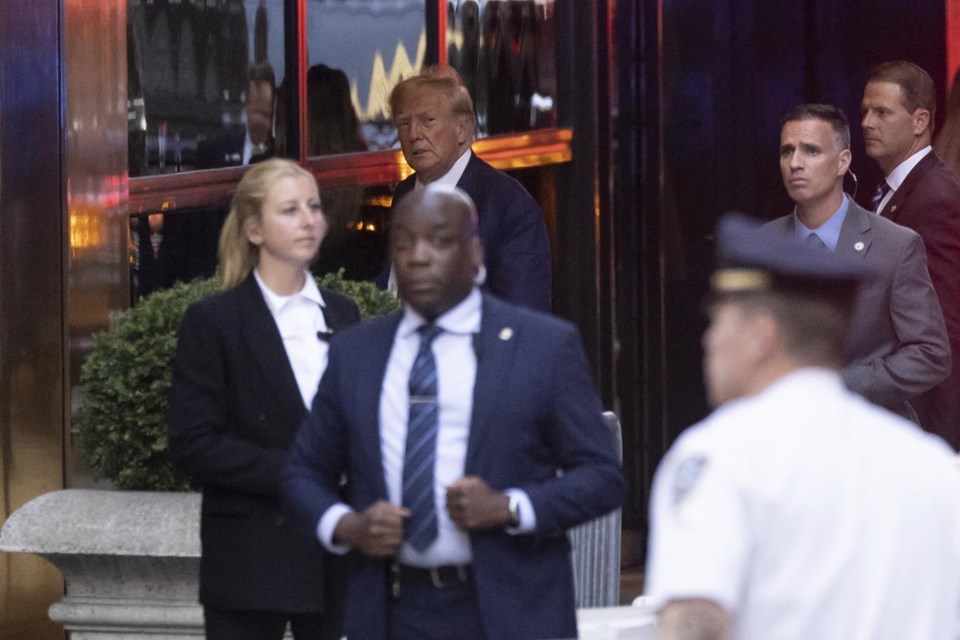NEW YORK (AP) — Former President Donald Trump answered questions for nearly seven hours Thursday during his second deposition in a legal battle with New York's attorney general over his company's business practices, reversing an earlier decision to invoke his Fifth Amendment protection against self-incrimination and remain silent.
The Republican met all day with lawyers for Attorney General Letitia James, who sued Trump last year. Her lawsuit claims Trump and his family misled banks and business associates by giving them false information about his net worth and the value of assets such as hotels and golf courses.
Shortly after Trump entered the Manhattan skyscraper that houses James' offices, his attorney, Alina Habba, said he was “not only willing but also eager to testify.”
After the deposition was finished, a lawyer for Trump's businesses, Christopher Kise, said the former president had spent nearly seven hours “describing in detail his extraordinary business success.”
“The transactions at the center of this case were wildly profitable for the banks and for the Trump entities,” Kise said. “When the facts of this success, and not politically engineered soundbites, are out in the open, everyone will scoff at the notion any fraud took place.”
The lawsuit is unrelated to the felony criminal charges filed against Trump by the Manhattan district attorney, which led last week to his historic arraignment, the first for a former president.
James declined to answer a question about the deposition at a news conference on an unrelated matter Wednesday.
Trump previously met with James' lawyers Aug. 10, but refused to answer all but a few procedural questions, invoking his Fifth Amendment rights more than 400 times. At the time, James had not yet brought her lawsuit and it was unclear whether questions about the way Trump valued his company would become the basis of a criminal case.
“Anyone in my position not taking the Fifth Amendment would be a fool, an absolute fool,” he said in that deposition, which was recorded on video and later released publicly. Trump predicted a “renegade” prosecutor would try to make a criminal case out of his answers, if he gave them.
“One statement or answer that is ever so slightly off, just ever so slightly, by accident, by mistake, such as it was a sunny, beautiful day, when actually it was slightly overcast, would be met by law enforcement at a level seldom seen in this country, because I’ve experienced it,” he said.
Circumstances since then have changed. The criminal charges brought by the Manhattan district attorney focused on how the company accounted internally for payments to a lawyer, Michael Cohen, for his work paying off people not to go public with stories about extramarital sexual encounters Trump said never happened.
James' lawsuit focused on allegations that Trump lied repeatedly about his own wealth and exaggerated the value of his assets on financial statements.
In a social media post Thursday morning, Trump called the suit “ridiculous, just like all of the other Election Interference cases being brought against me.”
He raised a fist as he left his apartment at Trump Tower in the morning, arriving by motorcade at the attorney general’s office around 9:40. The two sides took a break for lunch. Trump departed in the motorcade just before 6:15 p.m. and did not stop to speak to reporters.
The lawsuit James brought is scheduled to go to trial in October. Video recordings of Trump's depositions could potentially be played at the trial, if the lawsuit is not settled.
Thursday's deposition was conducted in private.
Michael R. Sisak, The Associated Press



